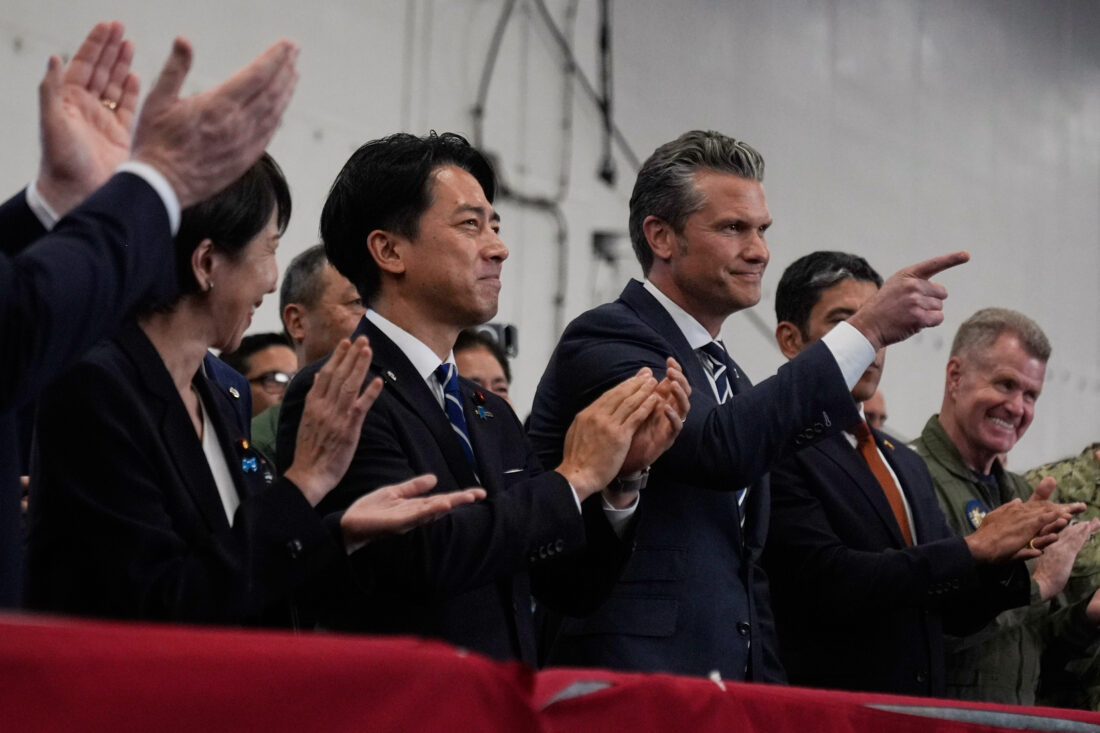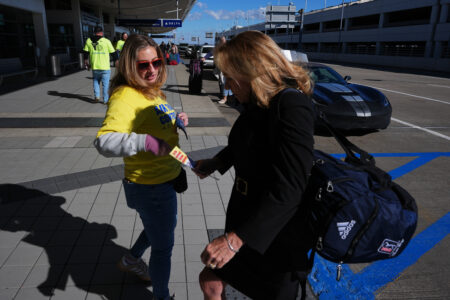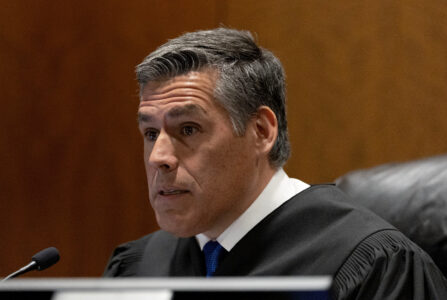US launches strikes on 4 alleged drug-running boats

U.S. Defense Secretary Pete Hegseth, center right, with Japanese Prime Minister Sanae Takaichi, left, and Defense Minister Shinjiro Koizumi, gestures as they listen to President Donald Trump speak to members of the military aboard the USS George Washington, an aircraft carrier docked at an American naval base, in Yokosuka, south of Tokyo, Tuesday. (AP Photo/Mark Schiefelbein)
WASHINGTON (AP) — Defense Secretary Pete Hegseth announced Tuesday that the U.S. military has carried out strikes in the eastern Pacific Ocean on four boats accused of carrying drugs, killing 14 people and leaving one survivor in the deadliest single day since the Trump administration began its divisive campaign against drug trafficking in the waters off South America.
It was the first time multiple strikes were announced in a single day as the pace of the attacks has escalated. The nearly two-month campaign and U.S. military buildup have strained ties with allies in the region and opened speculation that the moves are aimed at ousting Venezuelan President Nicolás Maduro, whom the U.S. has accused of narcoterrorism.
A statement provided by a Pentagon official, who spoke on the condition of anonymity to freely discuss the operation, said the strikes were conducted Monday off the coast of Colombia.
Following one attack on a boat, the military spotted a person in the water clinging to some wreckage. The military passed the survivor’s precise location to the U.S. Coast Guard and a Mexican military aircraft that was operating in the area, the official said.
However, the Mexican navy says it is searching about 400 miles southwest of the Pacific city of Acapulco, suggesting the possibility that the strike may have taken place far away from Colombia and closer to Mexico’s coast. It wasn’t immediately clear exactly where the strike took place, and the Pentagon did not give more details.
Mexico is still conducting a search for the survivor and criticizes the strikes
Hegseth said Mexican search and rescue authorities “assumed responsibility for coordinating the rescue” of the sole survivor but didn’t say if that person was successfully rescued or would stay in Mexico’s custody or be handed over to the U.S.
Mexico’s navy still was attempting a search and rescue operation, the military said in a statement Tuesday, a day after the strikes occurred. The American attacks drew renewed criticism from the regional ally.
Mexican President Claudia Sheinbaum said during her daily press conference that she asked the foreign affairs secretary and the navy to meet with the U.S. ambassador in Mexico to discuss the issue because “we do not agree with these attacks.”
“We want all international treaties to be respected,” she said.
The strikes also have strained ties with other historic allies like Colombia, a country whose intelligence is crucial to American anti-narcotics operations in the region. In an escalating clash between the Republican U.S. president and Colombia’s first leftist leader, the Trump administration imposed sanctions Friday on Colombian President Gustavo Petro, his family and a member of his government over accusations of involvement in the global drug trade. Petro vehemently denies the allegations.
In a strike earlier this month with two survivors, the U.S. military rescued the pair and repatriated them to Colombia and Ecuador. Authorities released the Ecuadorian man after prosecutors said they had no evidence he committed a crime in Ecuador.
Hegseth posted footage of the latest strikes to social media in which two boats can be seen moving through the water in separate clips. One is visibly laden with a large amount of parcels or bundles. Both then suddenly explode and are seen in flames.
The third strike appears to have been conducted on a pair of boats that were stationary in the water alongside each other. They appear to be largely empty, with at least two people seen moving before an explosion engulfs both boats.
Hegseth said “the four vessels were known by our intelligence apparatus, transiting along known narco-trafficking routes, and carrying narcotics.”
The Trump administration has shown no evidence to support its claims about the boats, their connection to drug cartels, or even the identity of the people killed in the strikes that began in early September and had been spaced weeks apart.





